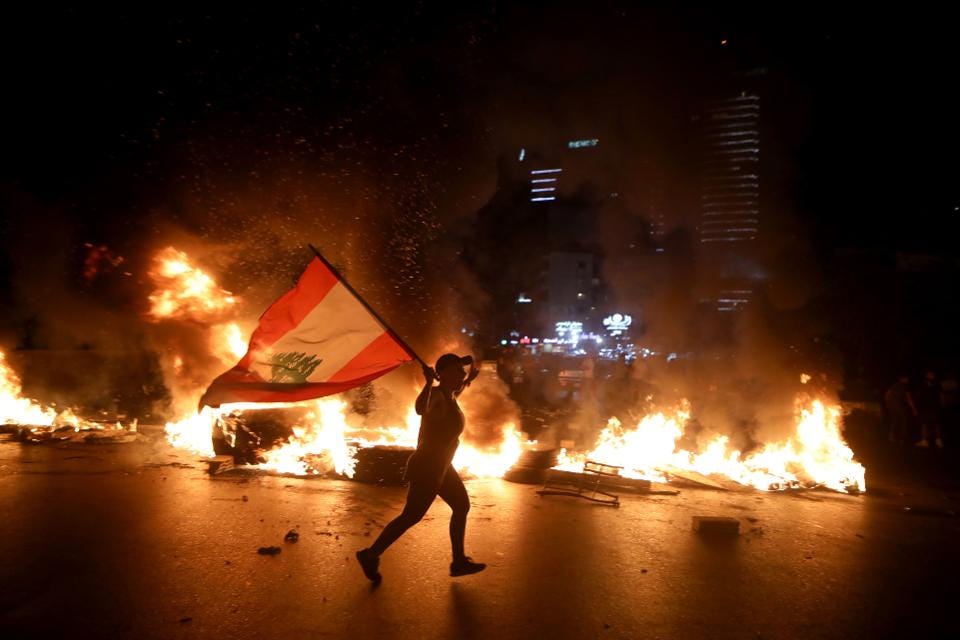FORBES: Lebanon’s Currency Crisis Paves The Way to a New Future
Lebanon is in the midst of the worst economic crisis in modern history. With its currency devalued by 85%, it is up to the people of Lebanon to rebuild a new financial system. Here are their options.
Once known for its dynamic food, music and culture, Lebanon is now in the midst of the worst economic crisis in modern history. With no clear resolution in sight, the country is experiencing rolling blackouts, a shortage of food and a monthly inflation rate of 56%. The Lebanese Lira joins a list of dozens of failed fiat currencies including the Venezuelan Bolivar, the Zimbabwean Dollar and Argentinian Peso.

A small middle-eastern country with a population of only 5 million, Lebanon takes pride in its emigrant community with countless families in Canada, U.S. and Britain. The Lebanese diaspora is estimated to be about three times the size of the Lebanese population back home.
Many expats were able to find success abroad, bringing pride to Lebanon. Some notable Lebanese figures include writer Nassim Nicholas Taleb, barrister Amal Clooney, actress Salma Hayek, singer Shakira, billionaire Carlos Slim and former Chairman of Fox Broadcasting, Lucie Salhany. Each year, Lebanese expats visit their homeland and infuse billions of dollars to keep the economy liquid.
An Import-Based Economy
In 1997, the Central Bank of Lebanon pegged the Lebanese Lira to the U.S. dollar at 1507 to 1. Over the last two decades, the stability of the Lebanese economy depended on a fixed exchange rate to the U.S. dollar.
Lebanon is largely a service based economy, heavily dependent on tourism most of which is conducted in U.S. dollars. Due to corruption and an unfriendly system to businesses, Lebanon did not develop self-sustaining domestic industries like many of its neighbors. Lebanon imports a staggering 80% of its products - most of the country’s oil, meat, grain and other supplies come from abroad. Lebanon receives U.S. currency inflows through tourism, foreign aid, remittances and loans. And in turn, spends those dollars to purchase supplies across borders.
Currency stability encouraged expats to continue to send money home, buy property and even deposit cash in local banks. It is estimated that Lebanese abroad sent remittances worth 12.5% of Lebanon’s GDP, keeping the economy afloat. The dollarization of Lebanon contributed to its growing wealth divide, where Lebanon’s top 1% earned 25% of the country’s GDP, making it one of the most unequal economies in the world.
As always, please reach out with your feedback and ideas.
Best,
Tatiana Koffman —> tatiana@tatianakoffman.com
Disclaimer: This email does not contain financial advice and was created solely for informational purposes.
Selected Publications:
Forbes - U.S. Moves Closer to Digital Dollar
Forbes - Why Bitcoin Is A Silent Protest Against Corrupt Governments Everywhere
Forbes - How China Will Take Over the World


